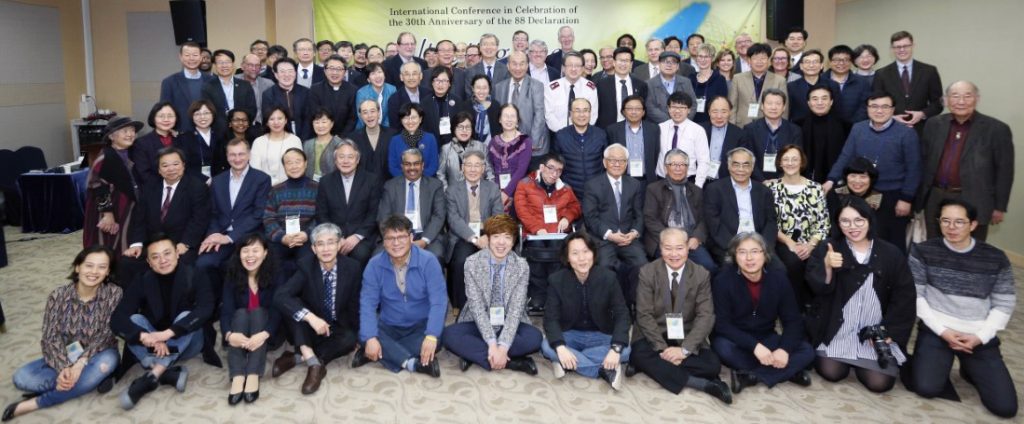Korean Churches reflect on foot-prints of the reunification movement

An international consultation organised by the Korean churches commemorated the 1988 Declaration of South Korean churches on national Reconciliation and reunification, the first declaration ever initiated by the people’s movement in South Korea when the country was still ruled under a military dictatorship.
Organised and facilitated by the National Council of Churches in Korea (NCCK), the consultation held in Seoul, South Korea from 5 to 8 March 2018 was attended by more than 120 participants from South Korea and several other countries in the world.
The 1988 Declaration on ‘National Reunification and Peace’ issued by the Churches in Korea greatly influenced people’s movement for reunification of Korean peninsula.
While speaking on the theme, ‘ Peace and Security in East Asia: Transforming Division and Moving Beyond Conflicts’, Dr. Mathews George Chunakara, General Secretary of the Christian Conference of Asia (CCA) said , “ As long as the U.S government continues its policy of ostracisation, North Korea becomes the most difficult threat to peace and security in East Asia.
The CCA General Secretary further added that, “Denuclearization in the Korean peninsula will require all stakeholders in Northeast Asia –, DPRK, U.S, Japan, and especially China - to cooperate on measures that could help North Korea return to the negotiating table”
A Communique adopted at the end of the consultation welcomed reports that North Korea expressed commitments to suspend its nuclear weapons development programme in order to enable dialogue to take place.
The communique stated that, “We have been blessed to be meeting during the very days of the most hopeful developments for peace in the region for many years, with the South Korean delegation visit to Pyongyang on 6 March – the first high-level direct talks between the two Koreas in more than a decade – and the announced commitment to a peace summit in April 2018”.
The communique further added that, “we give joyful thanks to God for these developments. We especially welcome the reported commitment by the DPRK leadership to suspend its nuclear weapons development programme in order to enable dialogue to take place, and the indication that the DPRK sees no need to retain nuclear weapons if military threats against the DPRK and its regime abate”.
The Consultation adopted an action plan for Korean peace advocacy at the national and international levels.










